A friend of mine recently referred to Discogs.com–the user-generated online discography (and marketplace) for records, CDs, tapes and all forms of musical media–as a national, no universal, treasure of information. Many liken it to Wikipedia (which it predates) but for audio media, with the goal to protect and celebrate all music, from the ultra obscure to chart toppers.
Kevin Lewandowski is the man who invented Discogs, a regular dude who loves records and happens to be really good at coding. Born and raised in Louisiana, Lewandowski graduated with a B.S. in Computer Science from Loyola University in New Orleans before moving to Portland, OR to work for Intel. After taking voluntary severance from Intel, and following the failure of three internal “start-ups,” he gave himself six months to code a new project that combined his programming skills with his passion for dance music records. Approaching the company’s 25th anniversary in 2025, he continues to steer Discogs, and even though the company went remote during the pandemic, he’s still based in Portland.
Kevin is surprisingly disorganized and refreshingly uncompetitive in the who’s-got-what-pressing game with a broad range of musical interests from metal, to techno, to jazz-funk, to ‘60s and ‘70s jazz. He’s recently gotten back into DJing, so you might see him around Portland spinning from his personal collection (not all logged on the ‘scogs!) ranging from ‘80s Brazilian jazz fusion, to rare and common jazz funk and more recent releases from around the globe.
Eilon and I traveled to Portland and caught up with Kevin right before a move, taking pictures and diving deep into his connection to records, collecting, collectors, cataloging, and honoring the collector’s journey.
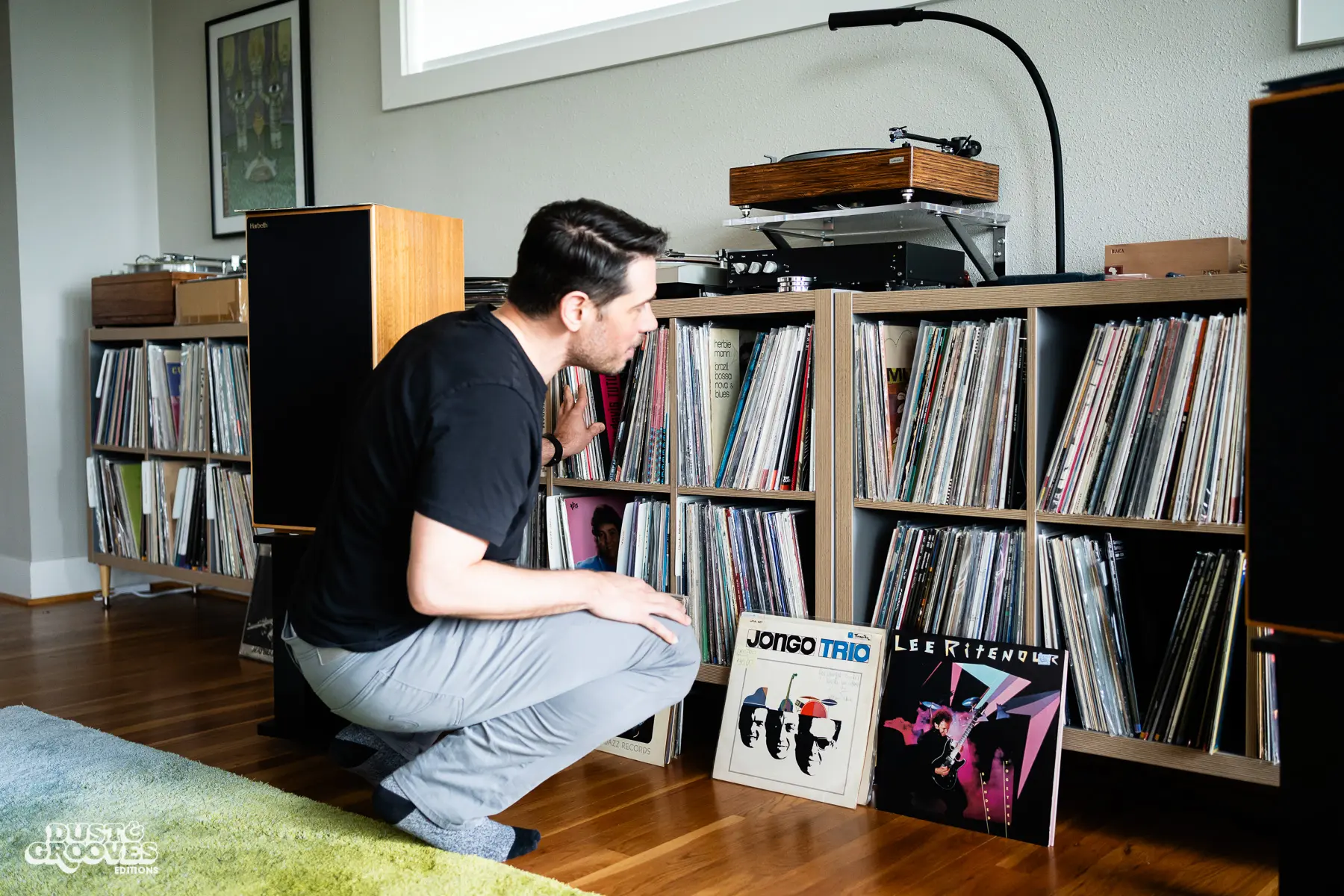
“My music taste go all over the place really. I have classical, death metal, and electronic, but when it comes to Discogs, it was initially just focused on electronic music, of course.”
Kevin Lewandowski Tweet
You grew up in Louisiana, right?
I grew up in Baton Rouge and then went to college in New Orleans, at Loyola [University]. As a teenager, I wasn’t that interested in the history of New Orleans music. I did go to Jazz Fest a few times, but mostly I saw a lot of [‘90s] rock shows: Nirvana, Soundgarden, Nine Inch Nails. I saw Radiohead in New Orleans. That was amazing!
How long have you been collecting records?
Probably since about college. My dad was into records—I would say he had a medium-sized collection. I went through his records a lot when I was a kid. Then I was into metal, like Metallica, in high school. Then, one of my roommates [during college] got me into industrial [music]. He was into Ministry and Front 242 and Meat Beat Manifesto kind of stuff. So, I got a little more into electronic music and then I really resonated with the dance DJ stuff.
In college, I had a friend who was a DJ at raves and stuff and I was like, “I really want to do that.” So, I got started with DJ stuff: house and techno and drum n’ bass. That’s what I was collecting in the beginning and that’s why I started Discogs. When I graduated college, I probably had 20 records. And when I finished college and moved here [Portland, OR] and had a paycheck, I started buying records every weekend, just looking for cool stuff.
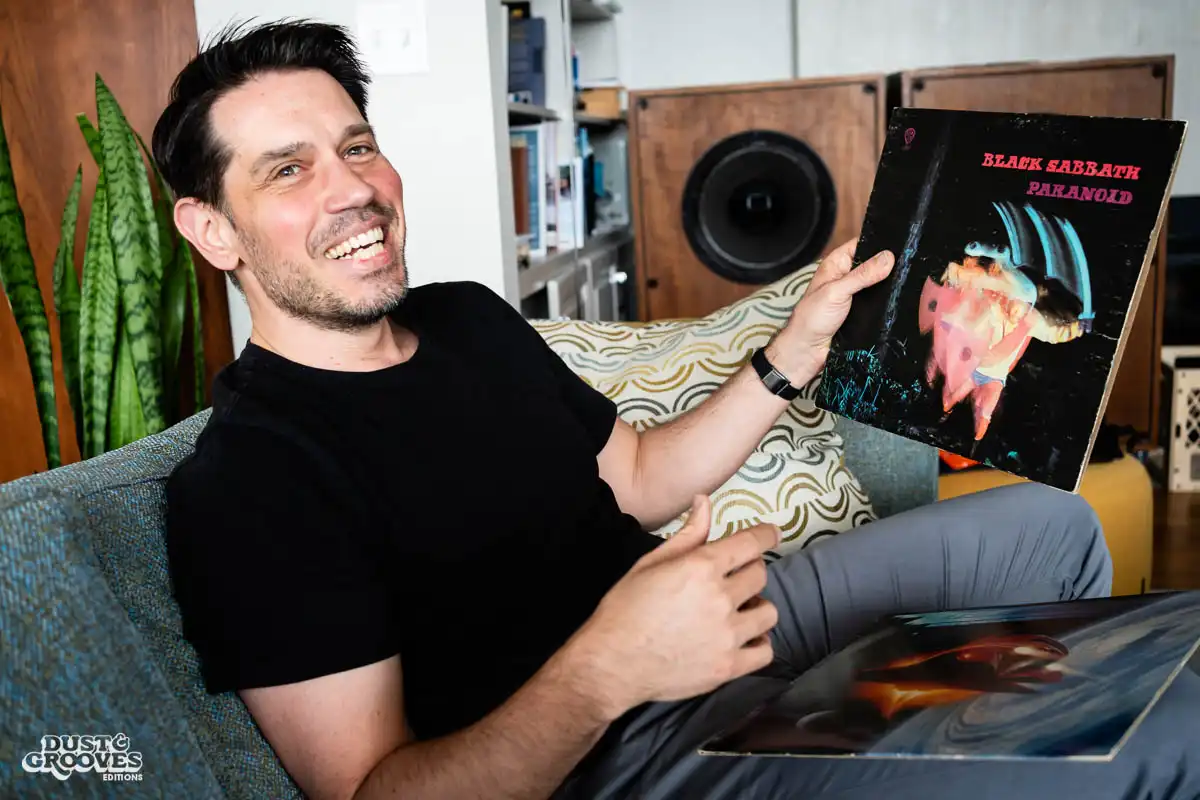
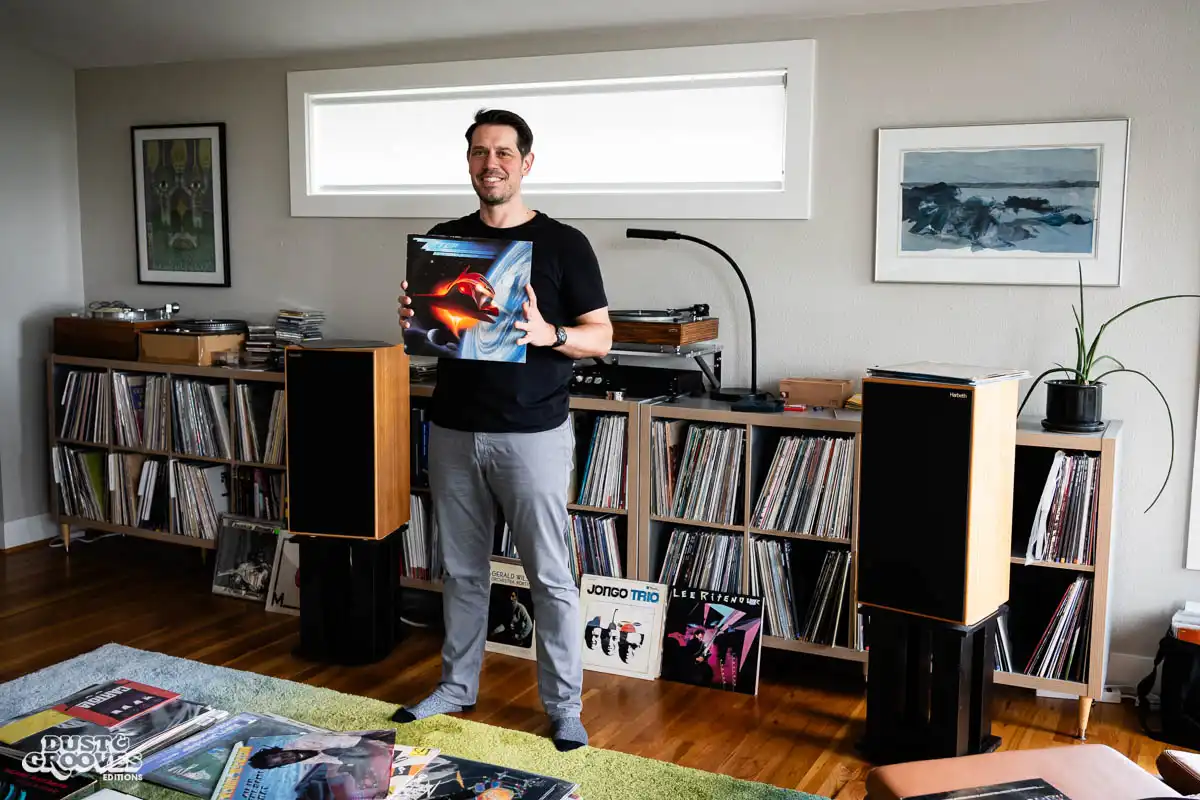
Back then, before Discogs, where were you buying your records? Was it in-person or on early websites?
There were a couple of places to buy online back then, like Planet X, but for local shops, down on 10th and Burnside there was a shop [Ozone Records] and they had a dance music section. So, I was there every Saturday.
Did you have these records when you first created the database and how many do you think you entered in those six months that you talked about when you were first building the database that would become Discogs?
Yeah. I entered these—I think it was around 200 records, which was not all of my records, of course, it was just enough to prove the concept, to show other people that it worked and get them interested in it
So, I have to ask, are you user #0001?
Yes, I’m user number one.
How would you describe your taste in music and what you collect? Were your tastes as broad when you started Discogs? Did Discogs facilitate wider exploration?
My music taste go all over the place really. I have classical, death metal, and electronic, but when it comes to Discogs, it was initially just focused on electronic music, of course. Interestingly, I was getting more into jazz as I was building Discogs. Actually, I remember I was listening to Kind of Blue a lot, like every night when I was coding Discogs. I get into a habit and do the same thing over and over. And my habit was to play this two or three times every night while I was writing code for Discogs.
I think it’s like a gateway to jazz, because I didn’t know much about jazz at the time. Someone told me it’s the best jazz album ever, so I bought it and started listening. If you like the saxophone or the piano, you can go down a rabbit hole and discover all kinds of new musicians.
"Yes, I’m user number one."
Kevin Lewandowski Tweet
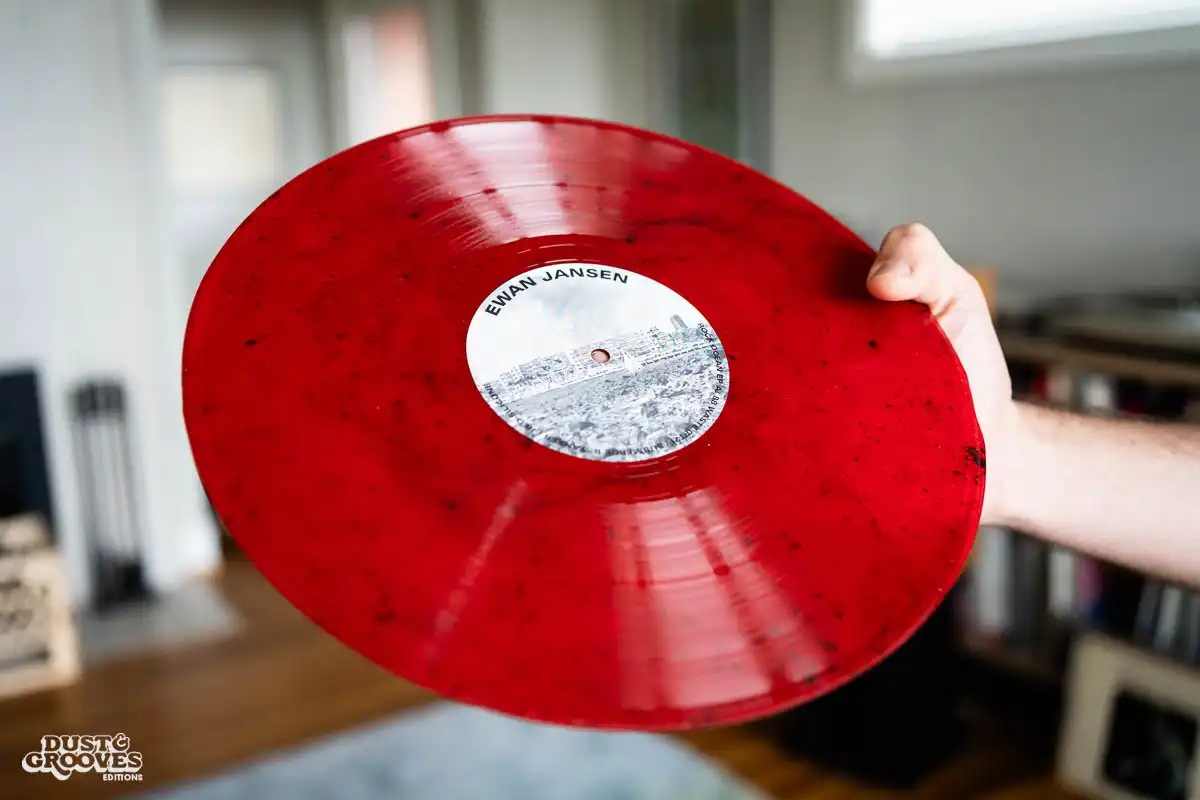
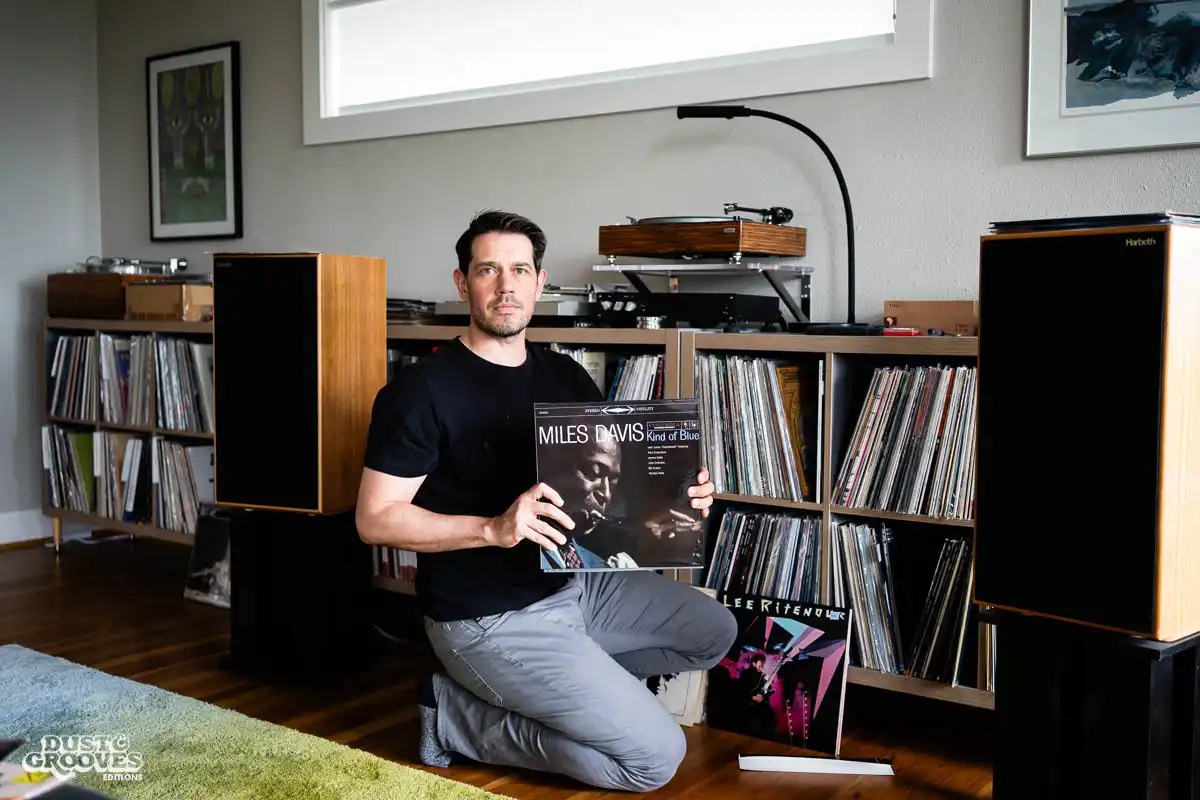
So, you weren’t exclusively listening to electronic music, it was just the parameters of the project?
No, it was just what I used for the project. The data structure of an artist, a title and remixer is very simple compared to all the other genres. So I just thought, all the other stuff is gonna be too complicated. Let me just do house and techno. The [original] design of Discogs was really small and simple, but it did one thing really well [cataloging house and techno records].
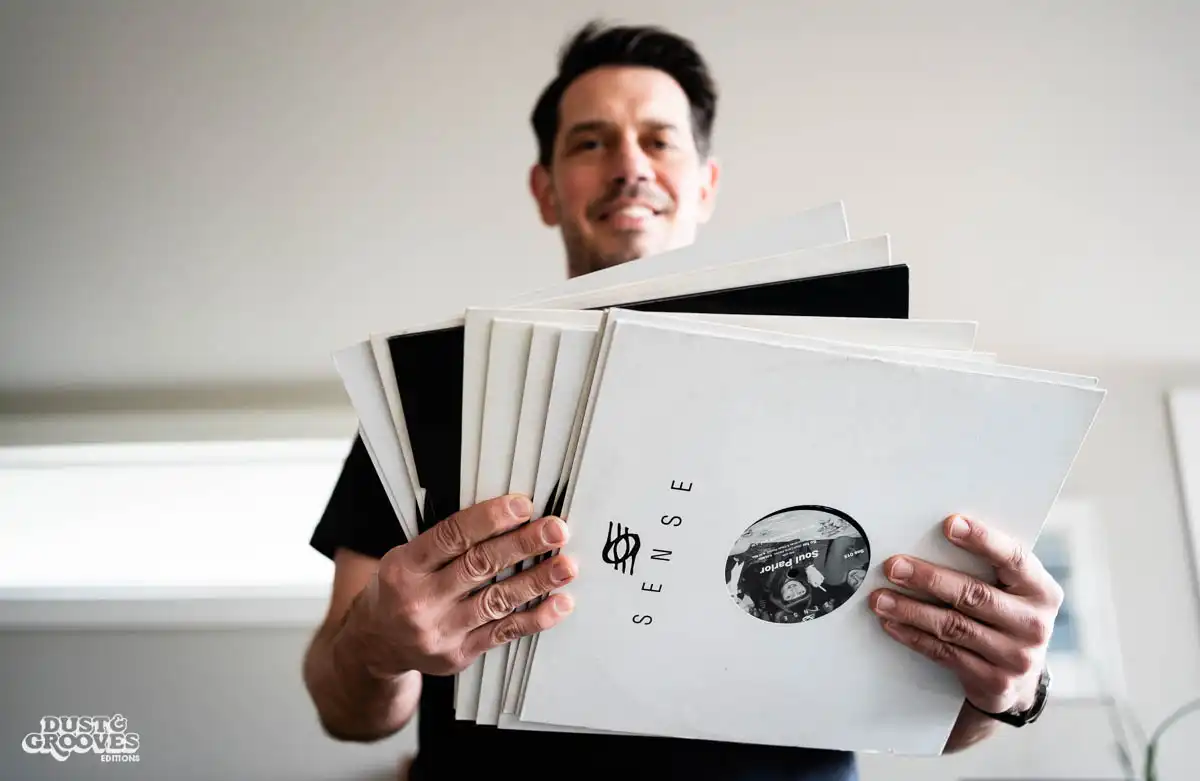
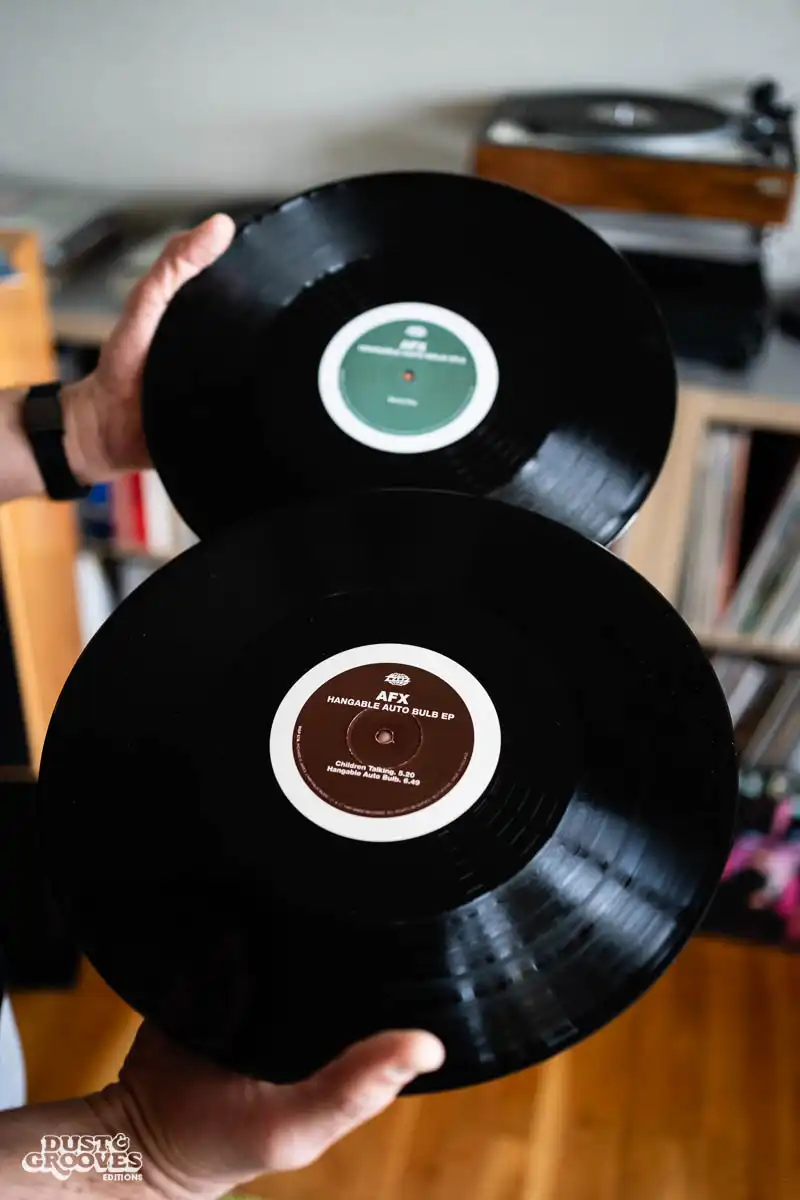
AFX (aka Aphex Twin aka Richard D. James) - Hangable Auto Bulb Vols 1 & 2. “These are two that I had heard about, and I knew were super rare. I was in New York and found them in a shop and grabbed them on site. Now they're like $300 each. Aphex Twin under his AFX alias. It's like his take on drum and bass.”
Do you have a strong compulsion to get the OG, the original pressing of a favorite record?
I think I looked into getting it [Kind of Blue] a while ago and it was really expensive. Some things I have multiple copies of, like, [Herbie Hancock’s] Maiden Voyage, another one of my favorite albums. I don’t think that’s an OG [of Maiden Voyage] but it’s an older [pressing], I’ve got the Achieve repress and I’ve got the recent Bluedot 180 gram pressing. For Donald Byrd’s Spaces & Places, I’ve got like three different versions of that.
Do you ever sell anything?
I’ve never sold a record, but I should. I sold a couple CDs back in the day and I regretted it. I had this one [import compilation] called Trance Europe Express, that was really cool. It was a double CD of electronic dance music and I think they had like four or five in the series. It had this little booklet with like 200 pages or something and profiles on each of the artists, and none of that information was online at the time.
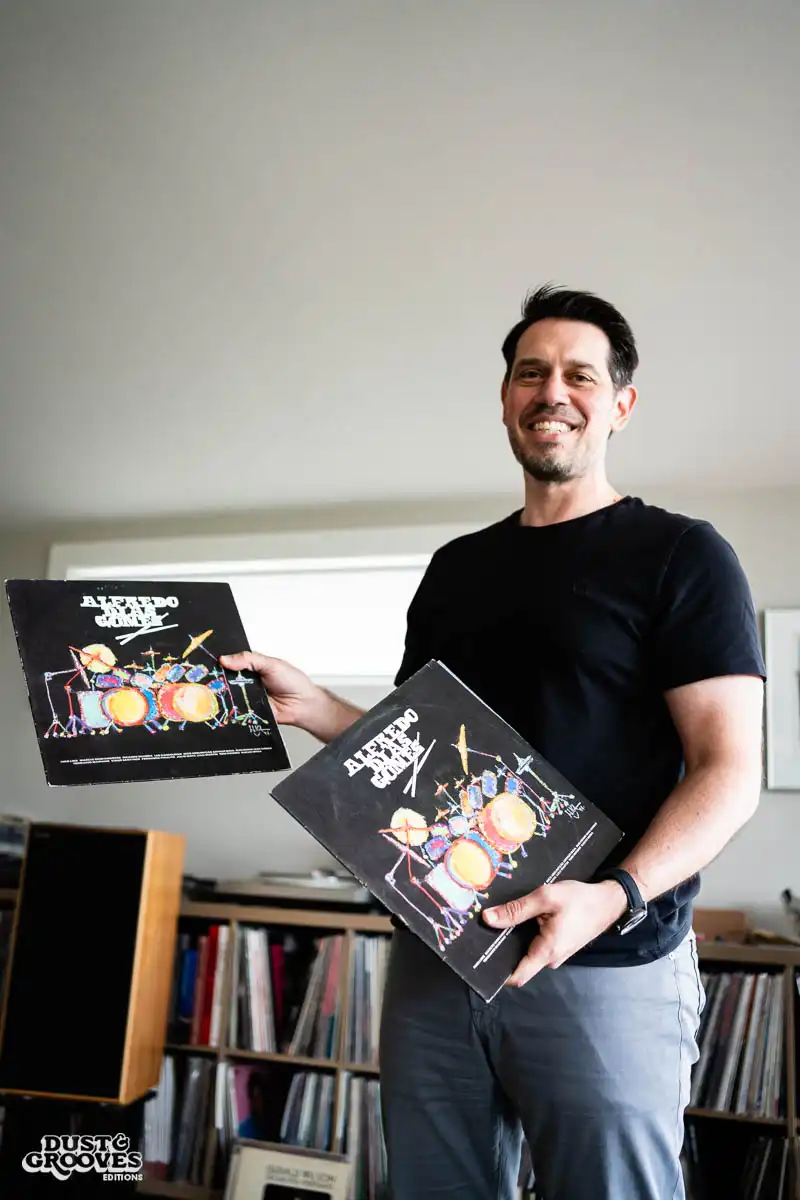
“Okay, it’s the OCD in me, I need two copies."
Kevin Lewandowski Tweet
Do you listen to music all the time? Do you have a routine for listening to music? Does music and work mix or overlap?
Usually, if I have a break in the day, like, an hour break, I’ll sit down and listen to a record while working on my laptop. If I’m working during the day, but I’m not in a meeting and I just need to focus, I’ll move into the living room and play a record right there on the sofa. There are certain tasks that are conducive to that from my experience like processing email or reading through a document.
I presume it would have to be instrumental then?
Yeah, I don’t listen to much music with vocals. Yeah, not since ZZ Top and my metal days [laughs]. Ever since I got into electronic music, it seemed like vocals were a distraction to me.
Are there any records that you’re trying to find?
Something that’s not on Discogs, or available at a shop? There’s one I can’t find for sale on the site or anywhere in person. It’s by this guy, James Dallas. This is his first one, which is a private press record, and he has another one and that’s what I’m looking for now. It’s like ‘80s jazz-funk.
And you haven’t been able to find his second record?
I just can’t find it. I’ve set up alerts and monitors to try to tell me when it’s available, I checked eBay and Discogs to notify me. There are probably just very few copies out there.
Like having a record that is “unshazamable,” have you heard of the “not on Discogs” flex amongst collectors where the record has not been entered into the Discogs database yet?
Yeah. I mean, it’s getting harder and harder to find things not listed. I add things whenever I find something not listed. It’s a prideful thing – “Hey, I added this!” You get your name down at the bottom. A guy sent me a record recently that wasn’t on Discogs, so I added them right away. I was super happy about that. I need to learn Japanese or something. You’ll find stuff that nobody’s added yet!
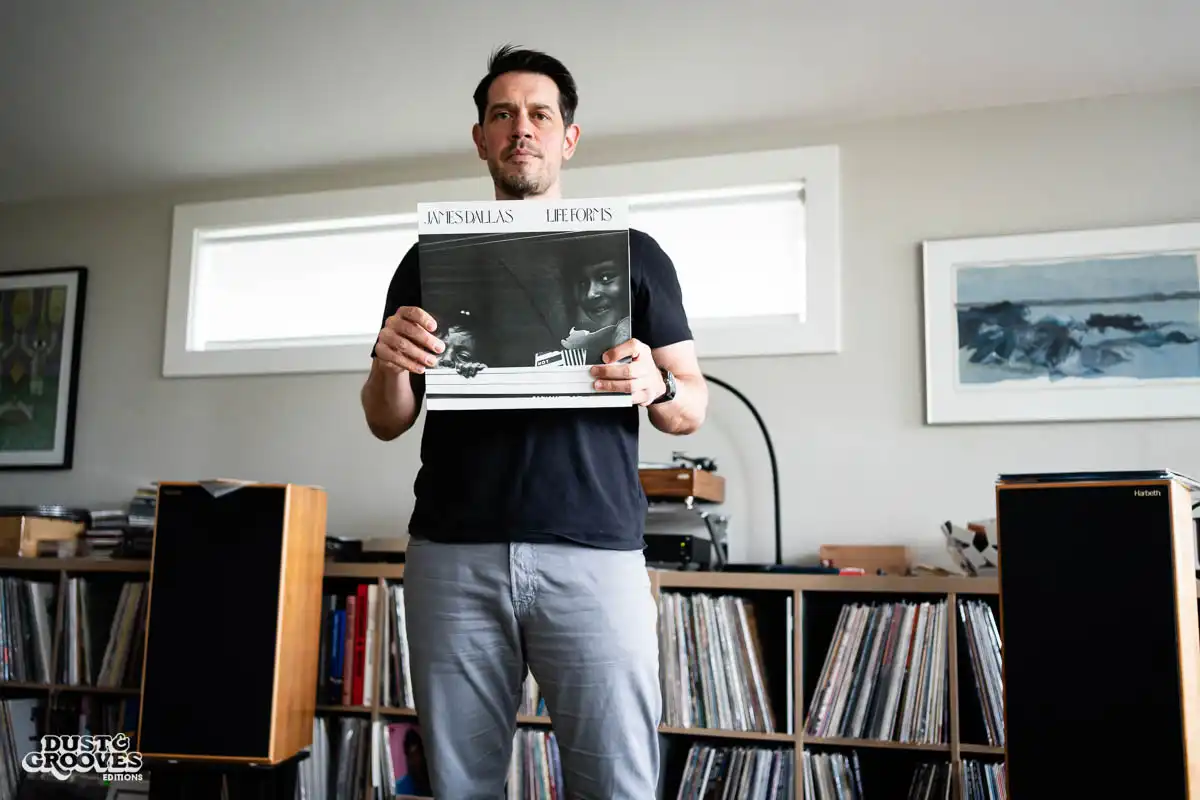
So you mentioned Maiden Voyage . . .
Yes, it’s one of my favorites. I get into habits with things. This is my painting music, so anytime I’m painting, like walls or the house [this is the record]. What are other people listening to while they’re painting? I think relaxing, repetitive type music. I mean, this isn’t too repetitive. But it’s kind of a journey, the way it moves.
Speaking of voyages, you mentioned you’d been to Brazil. What took you there, besides the records?
A couple years ago, I just wanted to visit a new country with a different language and I heard they had a lot of record shops in São Paulo. I’m not really a beach person, so I decided to go to São Paulo and I ended up in a record store [Patua Discos], talking to those guys and they helped me out a lot.
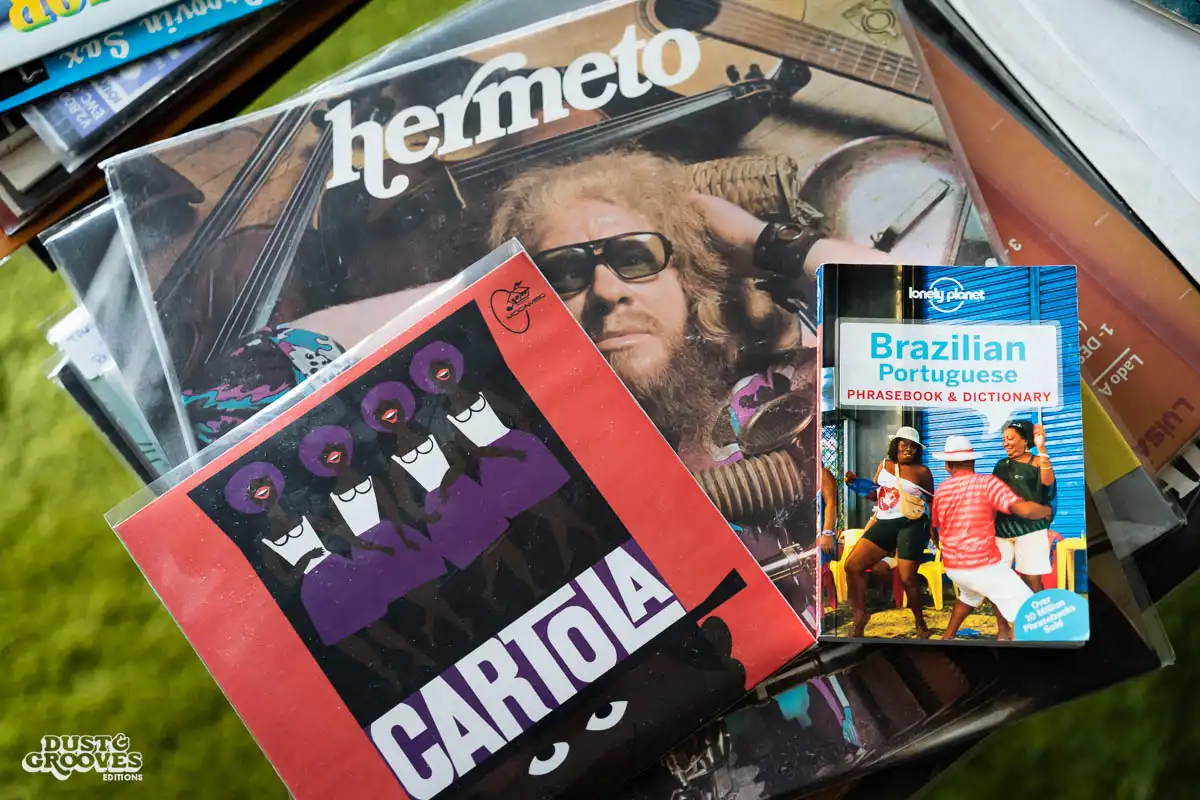
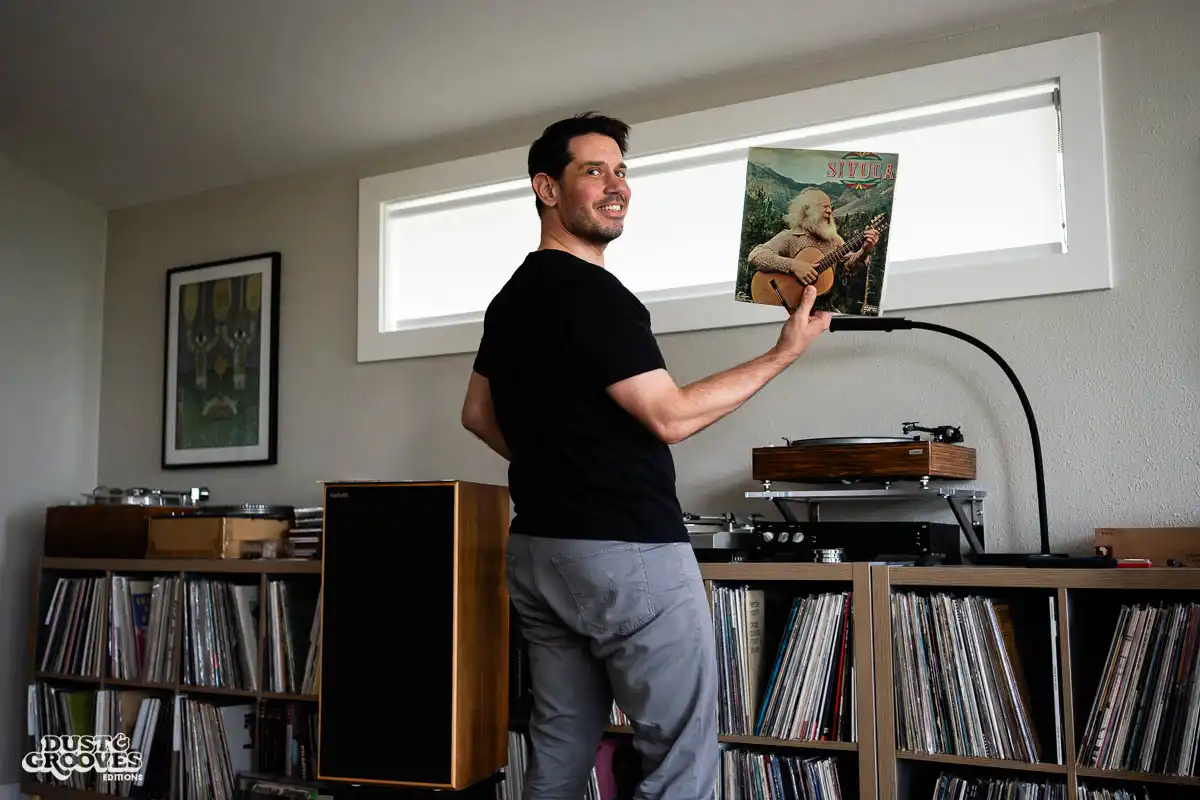
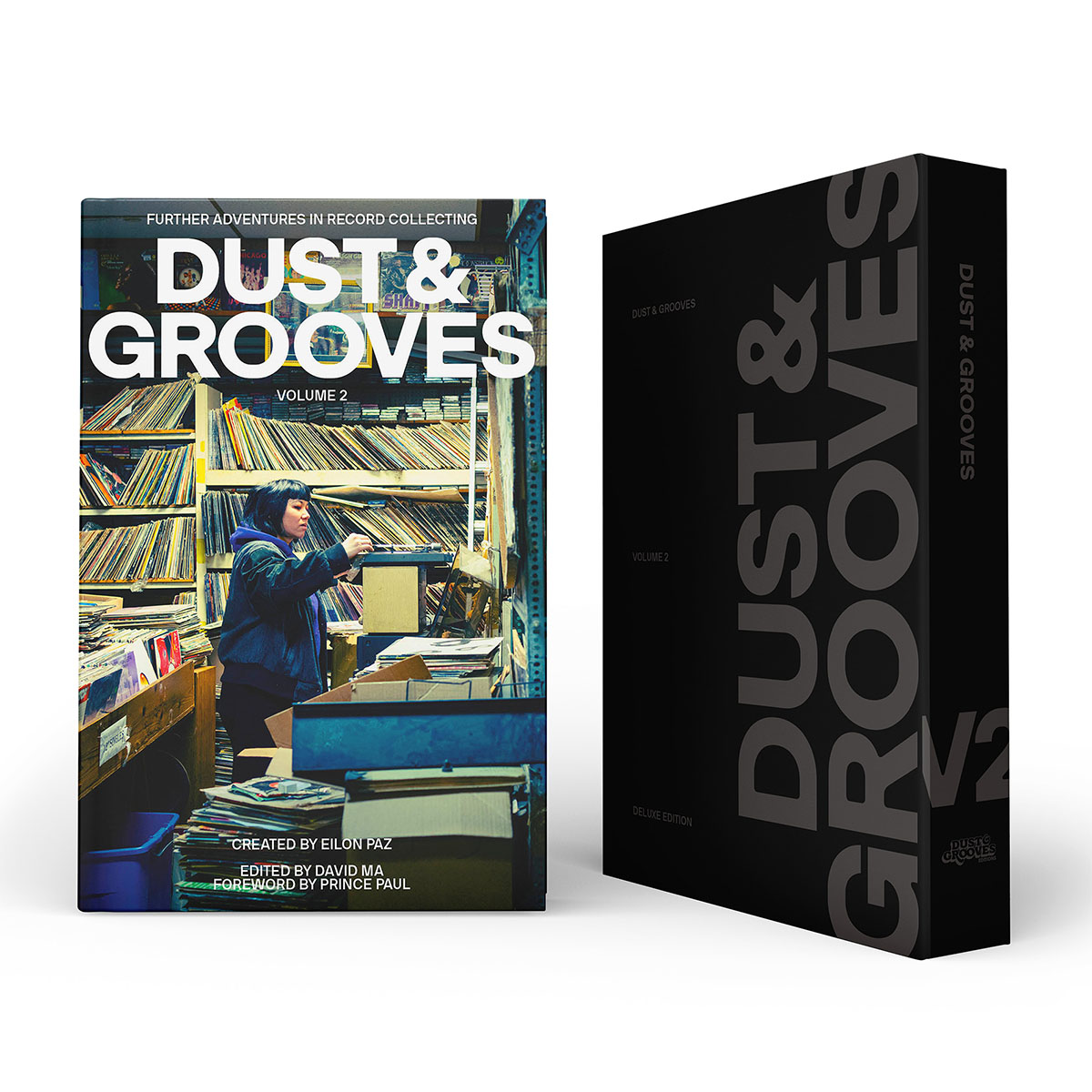
Dust & Grooves: Further Adventures in Record Collecting – Deluxe Slipcase First Limited Edition
Further Adventures in Record Collecting
Dust & Grooves Vol. 2
Kevin and 150 other collectors are featured in the book Dust & Grooves Vol 2: Further Adventures in Record Collecting.
So, you’ve traveled to Brazil three times in two years?
The third time I was there for business. I’m gonna go again in June. My oldest son is graduating High School and I told him I want to take him on a trip. He chose Brazil because he’s interested in public transportation systems and stuff. He wants to ride the [São Paulo] Metro.
Do you identify as a collector and are there other things you collect or have collected?
Yeah, definitely. Speakers are another one. I’m ashamed to say I have more speakers than rooms to put them in. I guess I’m getting more and more into vintage Hi-Fi, and I’ve been doing a lot of research about vintage speakers. I have a few pairs that were used in recording studios in the 70s, so if you want to hear a recording from that time period, exactly how the engineers heard it, you get those speakers.
I also have a small calculator collection, like fewer than 10. I play with them now and then to make sure they still work, but, yeah it’s super nerdy. My dad used this one HP-10C or 12C, I can’t remember, which uses RPN, Reverse Polish Notation, where instead of typing “two, plus, two, equals” you type “two, enter, two, plus” and from then on it’s fewer keystrokes, which is kind of fun. I have one on my desk today. I still use it all the time.
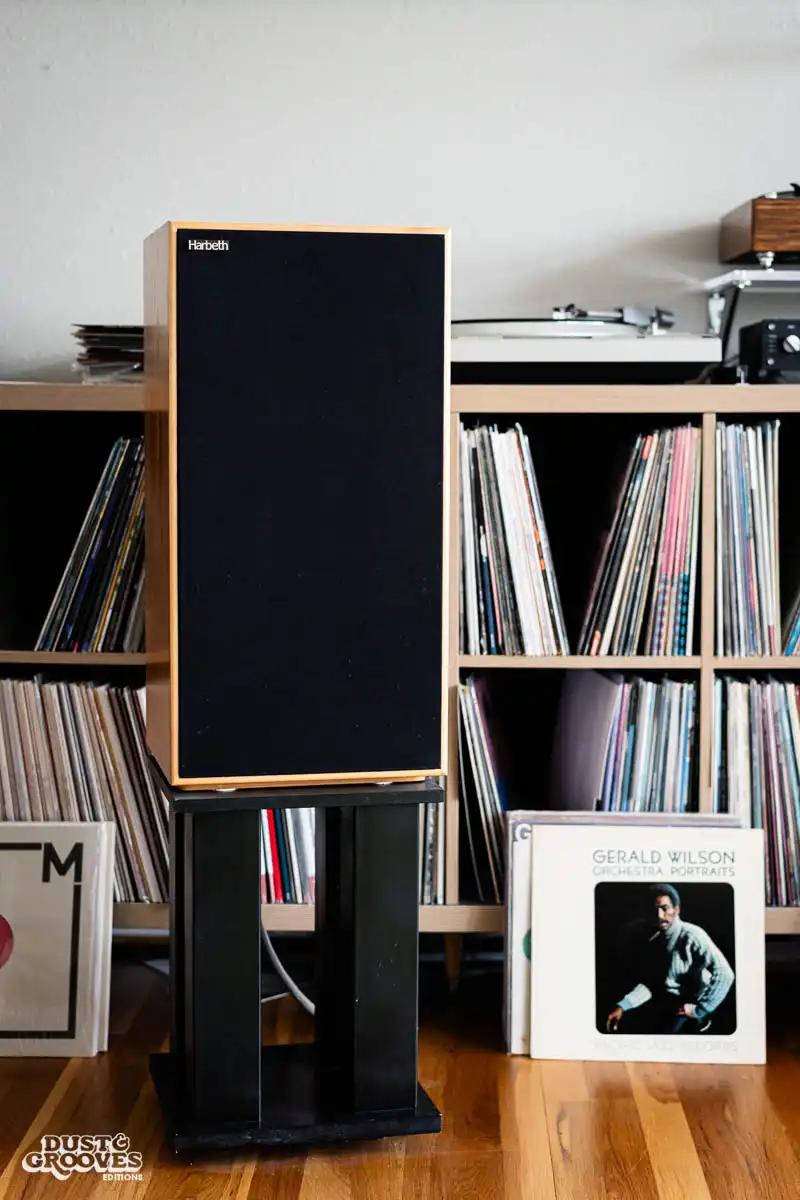
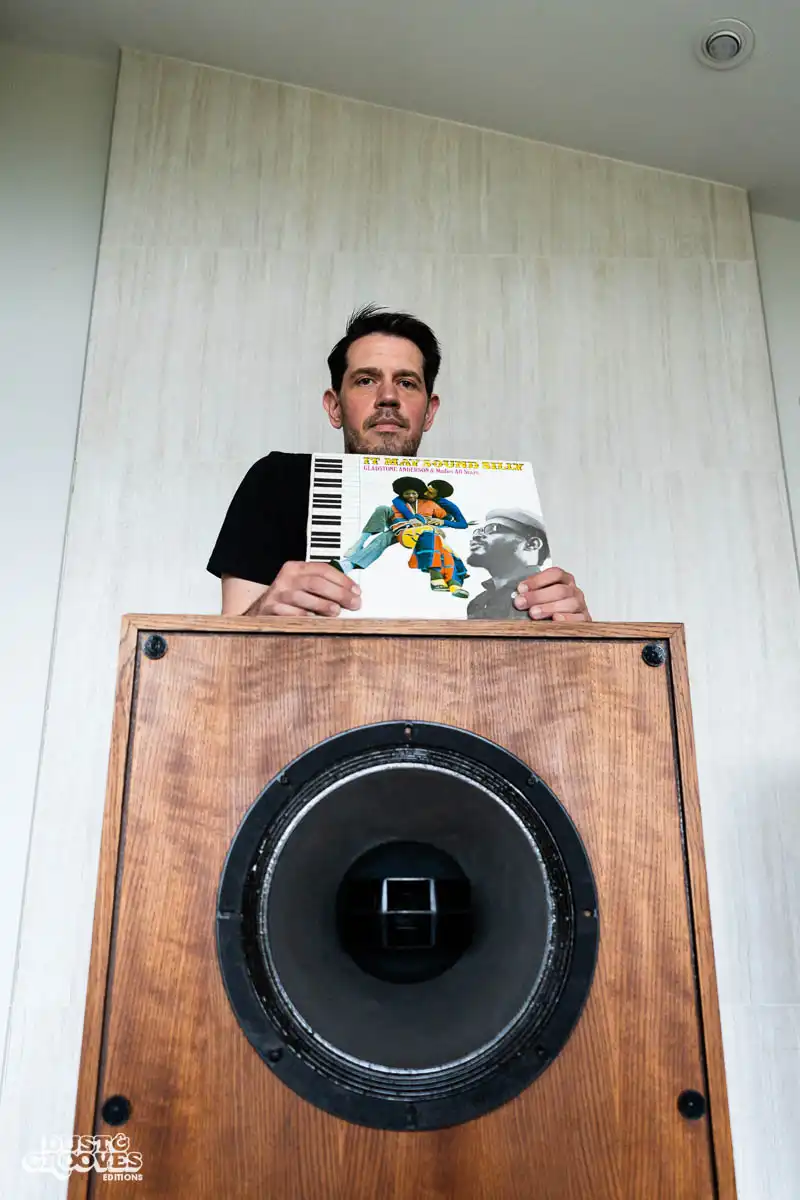
"One of the funniest forum threads I remember, within the first year, somebody wrote, 'is this community alive?' Then, somebody else wrote, 'what do you mean by alive?' And then I wrote, 'I think, therefore I am.' We were giving this guy a hard time, but the community was indeed alive."
Kevin Lewandowski Tweet
It seems like with Discogs you’re attempting to replicate the experience of going to a record store and being able to browse and ask questions of people who know more about certain things. When you started, did you know when you built it, that users and contributors would come, or did you have a plan B?
It was both. I knew it could work, but I’d done a couple of projects with friends that never went anywhere. During my five years at Intel, I was a part of three internal startups, which all got shut down right away because they tried to get too big too fast. So, I knew I wasn’t going to over-invest in this and I’m only gonna make new features if people ask for them. I launched without images or album covers and there definitely wasn’t “add to collection” or wantlist, or ratings or reviews, or any of that. So I did the most basic thing and I said if people use this, and asked for things I would build them—I remember being really clear with myself about that.
Did Discogs come before Wikipedia or was there some influence there?
We were off and running well before Wikipedia. There was another site out there called Open Directory Project, dmoz.org was their domain name. Open Directory Project was like a list of links, like way back before search engines you had a link directory and they created a competing thing where they had their own hierarchy of links. People could sign up to be editors of certain categories, like if I was a Hi-Fi expert, I could edit the Hi-Fi category and manage those links. So, it was a community effort. I don’t think I edited anything on that site, but I was looking at it a lot.
I can’t remember, and I doubt it was 100% my idea, but people online were talking about a community effort for discographies, and at the same time I was talking to people on mailing lists about collecting records. I would be like, “I don’t have #4 from this label, does anyone know what it is?” and someone would answer. So, that’s when I thought that a community-powered system would work really well and over time, we could get to a 100% complete discography of everything.
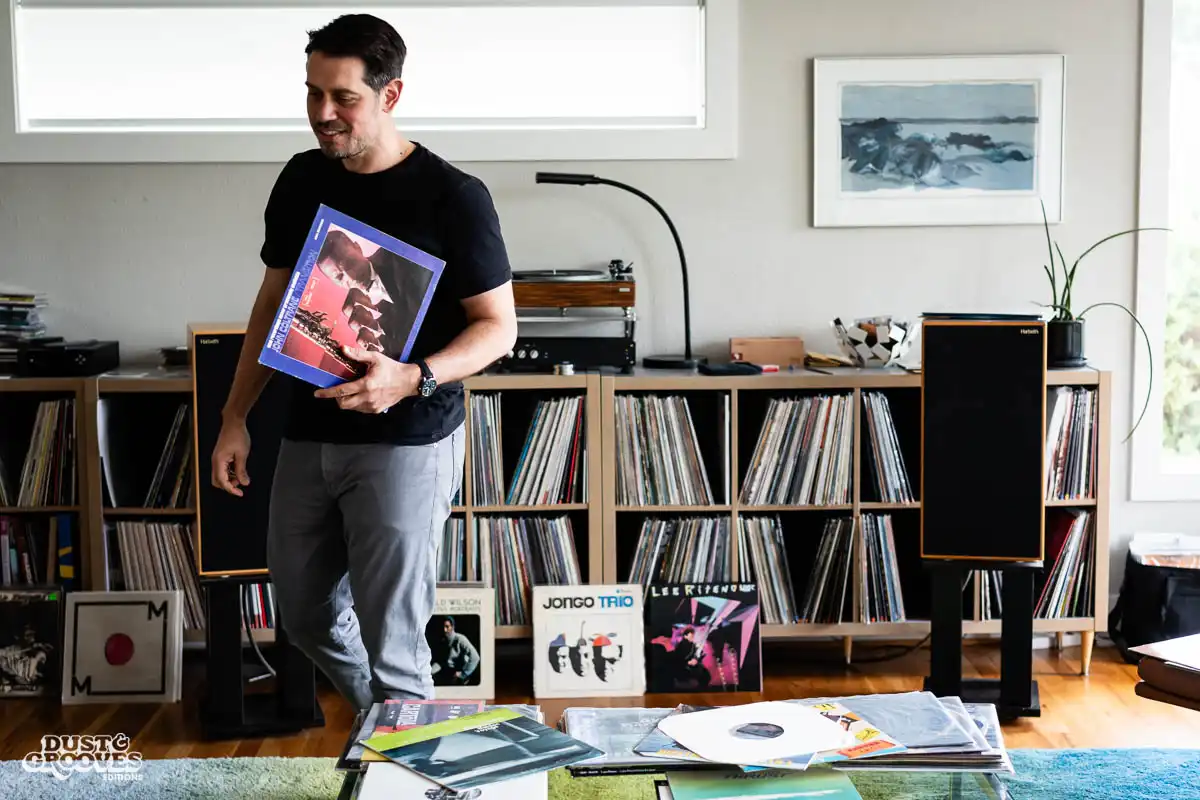
I’ve worked in libraries before and taxonomy becomes essential. I imagine you guys have had deep conversations when you expanded to new genres. Was that process difficult?
It was. I really didn’t think we could do classical and I even didn’t think we could do jazz, but with all the user feedback, they brought their ideas and we were able to make it work.
What are your thoughts about the community on Discogs? Did you have any sense that “community” would be a part of it?
I wasn’t really thinking about the word “community.” I was thinking of open-source, or grassroots efforts. I mean, I’m also a software developer and have been interested in programming since I was fifteen, trying to write video games and I’ve been using Linux since 1995. It was super new then—you’d basically fuck your desktop if you installed Linux! The whole concept of people from all over the world contributing their time and effort to create something for free really resonated with me.
You said you weren’t thinking about community initially, but when did it strike you that “community” was happening? And if you didn’t use the word community, what word did you use?
I can’t remember, maybe I did use the word “community,” because it was critical. We had a forum from day one. People could give feedback and ask questions. So many of the decisions that we made over the years were influenced by community users.
I guess community WAS a thing. One of the funniest forum threads I remember, within the first year, somebody wrote, “is this community alive?” Then, somebody else wrote, “what do you mean by alive?” And then I wrote, “I think, therefore I am.” We were giving this guy a hard time, but the community was indeed alive.
How do you balance what the tone of Discogs should be when someone comes to the site? Do you appeal to the nerds and hardcore collectors or are you trying to appeal to the first-time vinyl buyers? How do you split the difference?
We haven’t figured it out yet. I would like to. I would like to satisfy both audiences. I think the information hierarchy and architecture we have is quite complicated right now, like with this concept of the “master release” and a “release.” If a new user lands on those, they’re confused, but I understand it fine and people who have used it for years understand that. So, we have a couple ideas with the design and UX (user experience) to make that more clear. I’d like to take an approach where it’s simple, like, your first view is a little more simple than what it is today, but if you want to dig into the details, that’s still an option.
The mindset of longtime Discogs users and the most active users is they want to see 100% of the information. It’s all about facts and accuracy and even being able to click on page one to page 150, to jump to the end—that’s important [to some users]. We learned that recently when we tried to remove that thing where you can only go next, next, next, and people were like, “NO.”
“I estimate my collection is about 3,000, but it’s not all logged in my collection on Discogs. I mean, that's like a rainy-day project that I've been putting off.”
Kevin Lewandowski Tweet
Is the goal to convert Discogs visitors into collectors?
I don’t think we should force them to become collectors, but if they want to, we’re there. The vision of the company is: “The Complete Record Collector’s Journey,” which is everything from getting your first record, to maybe even opening a record store. I think at some point, record players could be a thing [on the site].
Pre-orders or upcoming releases are something we’re not touching right now, so that’s something that I’d like to address. You’re not allowed to add something to Discogs until it’s in your hands. There are all these upcoming releases, maybe as far as two months or three months early that aren’t on Discogs. I would like to extend our catalog the other way, but historically we have relied just on user data and have not accepted entries from labels, so we’re talking to a distributor right now to experiment with their data. That could be a separate database. I’m not sure how we would do that yet. I’m just thinking about the data.
Some of the heavy users have more critiques than compliments, but even the harshest critics still use the site, because where else do you go, right?
A couple of years ago a seller approached us at the Utrecht Record Fair. Our team was afraid of him because he had been kind of angry in his emails and, like, they only sold metal. He’s a big German guy, get the picture? I was talking to him. And after a while he’s like, in the thickest German accent, “I know, I give you guys a hard time, man, but Discogs is fucking awesome!”
I think that’s why people get so fired up and passionate about things, because it’s a huge part of their lives, especially for people who have contributed so much data, right? Some people, I don’t know, they’ve spent a year of their life, multiple years of their lives building this thing!
Back to the idea of community, it was always important, it just wasn’t called community. I think probably around the same time Discogs came out people started talking about “online community.” We have one guy that works for Discogs and he’s been here since around 2015. He was, and still is, the number one contributor on the site. We don’t pay anyone to add anything, so his job is to oversee other people adding entries or edits. He knows the rules really well and when people bump into “edge cases,” he helps them sort out the issues, maybe modify the rules, or create a new rule.
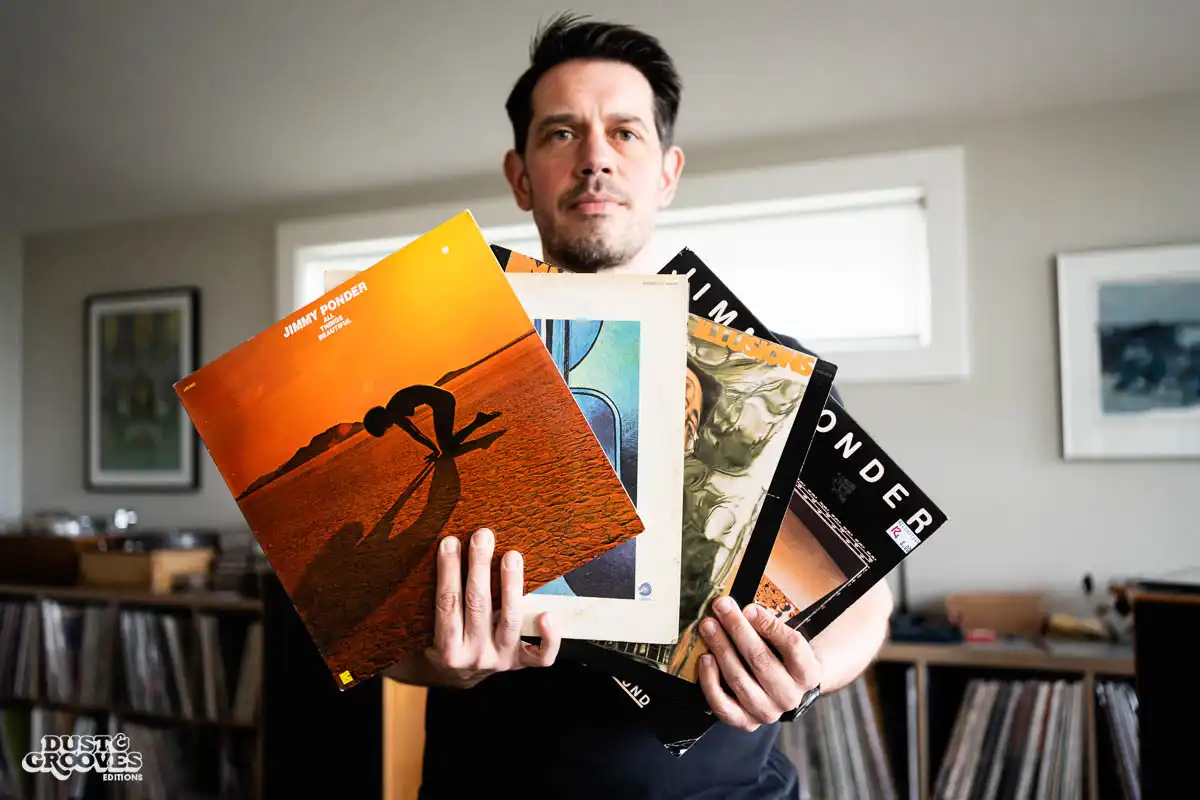
What can you tell us about the 25th anniversary of Discogs?
We’re going to refresh the brand, like the logo, everything down to the colors, getting more refined and getting away from the black and yellow design aspects. There will be more user interface improvements to make it a little more streamlined for first time users. And we’re planning a big company party at Dante’s Hi-Fi in Miami. The actual anniversary will be November 1, 2025, but the party will be sometime in late 2025.
Do you still DJ yourself? What do you spin?
I have a house/techno setup in the basement. I’m in the process of moving right now, so It’s kind of disassembled and it’s a mess now, but I usually spend some time once a week down there just for fun. I started DJing out again recently at some local Portland spots like Keys Lounge and Radio Room.
What are some of your comfort records?
I have a couple. Kind of Blue for sure, and two Oliver Nelson records. They’re kind of like a big band jazz type sound. One of them is like a tribute to Berlin or to Germany, or something like that [Oliver Nelson And The “Berlin Dreamband” Berlin Dialogue For Orchestra]. He did it with a German orchestra. It’s not very popular on Discogs for sure. I really like it and it’s not expensive.
There’s another [Oliver Nelson] one called Black, Brown & Beautiful and they’re both varied and kind of take you on a journey and they’re very relaxing. So, that’s kind of like a comfort record after a long day, the house is quiet, just put one of those on . . .
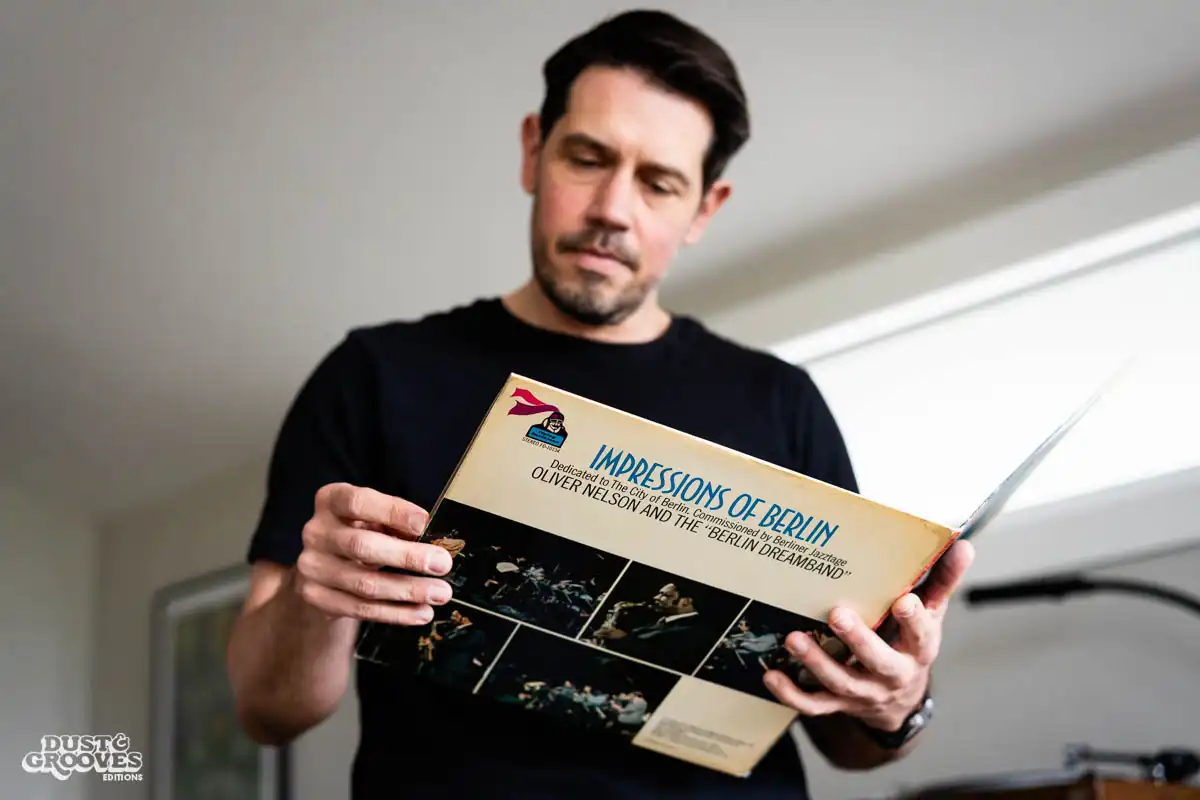
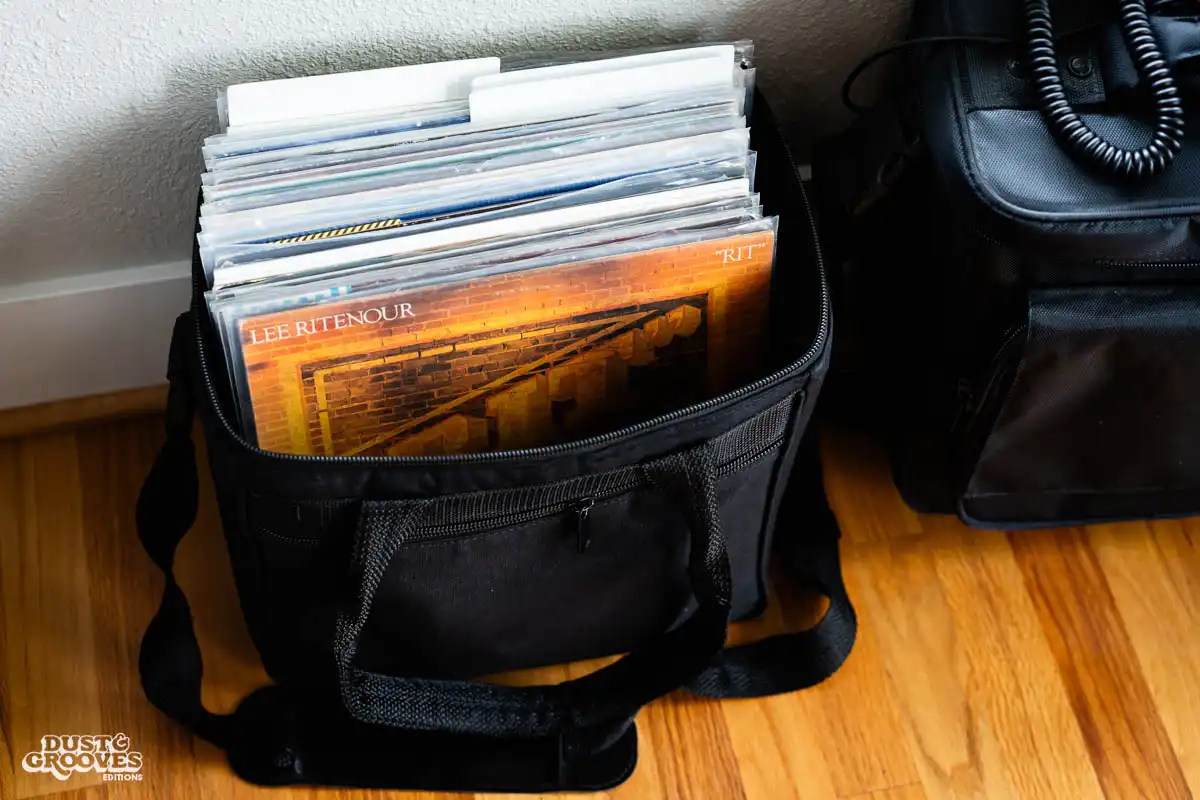
"So, you buy things on eBay?" > "Wherever I can get it!"
Kevin Lewandowski Tweet
Have you always been a very organized person, like are these [records in the living room] organized?
Not really. I mean, it’s kind of like [gesturing towards the records in the room], there’s jazz here, smooth jazz, rock and metal, I’ll know in my head, “oh, this record was on this shelf.” I’m super messy. I mean, I’m like a cluttered person, but my brain is able to scan a lot of information and make sense of it.
Is that an OG Thrust Too?
I thought I was the only person who knew about Thrust! It’s some of the same group as the McNeil & Niles Thrust album. It’s jazz-funk from the ‘80s. I found the McNeil & Niles in a shop in New Orleans and really liked it. I looked them up and had to get this one. I saw it on eBay for $500, so I took it. It was sealed.
So, you buy things on eBay?
Wherever I can get it [laughs]!
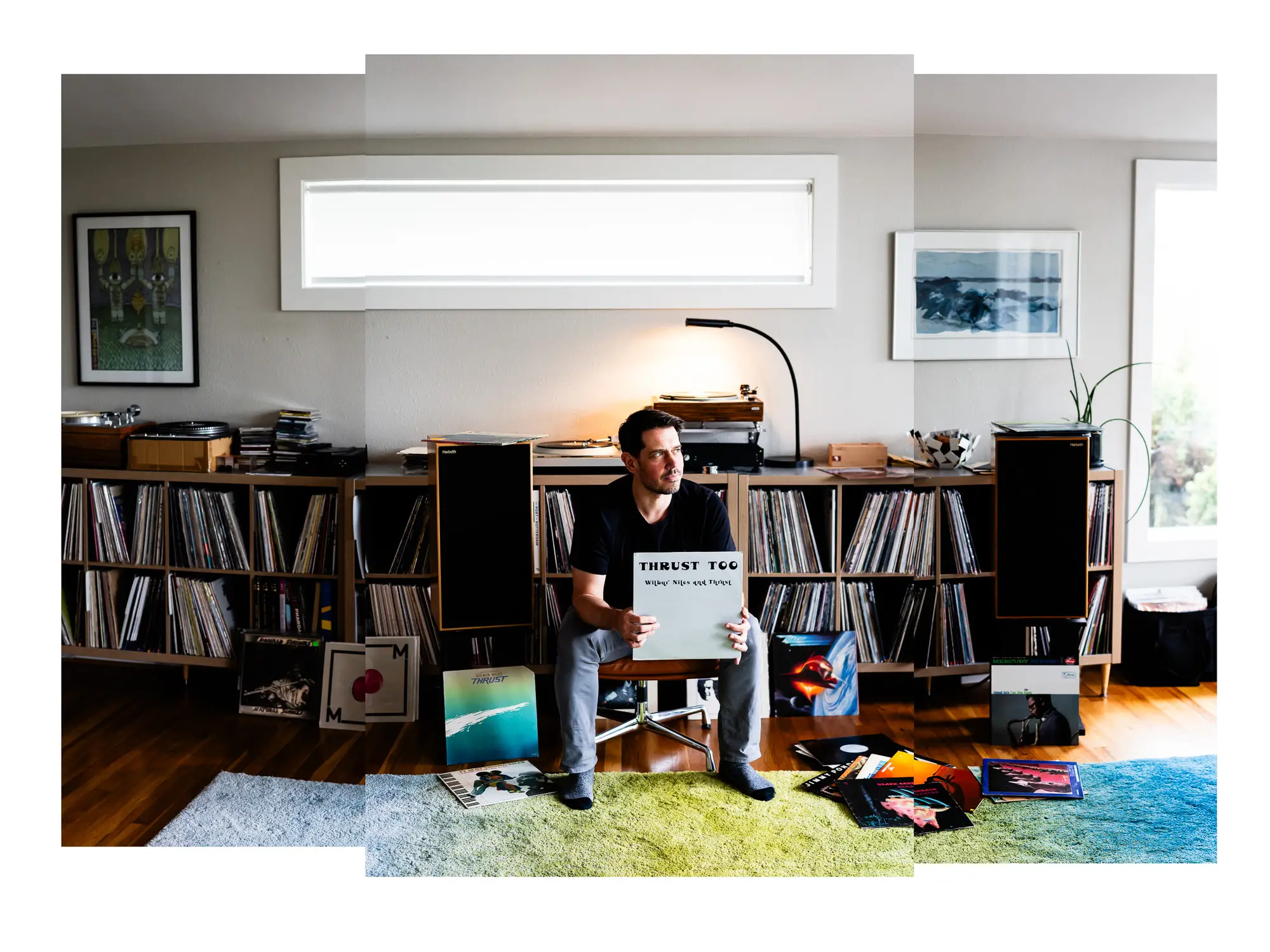
“If the house is on fire, I’m taking this one!”
What about it captured your attention?
Jazz funk—that’s my thing. I liked it, so I wanted to dig more and see what else they did. And I heard about this one [Thrust Too]. And, I mean, I wasn’t going to find it in a shop? I think if the house was on fire, I’m taking that one. Everything else is replaceable. Thrust Too is probably my in-case-of-fire [record], just because it’s the most I paid for a record and I don’t know if I’d ever find it again.
If you’re already there, in that realm, is there a number you won’t pay? Is there a record that, if it showed up for $1,000, would you buy it?
Probably not. I almost paid $500 for another record, a reggae version of “Loran’s Dance”
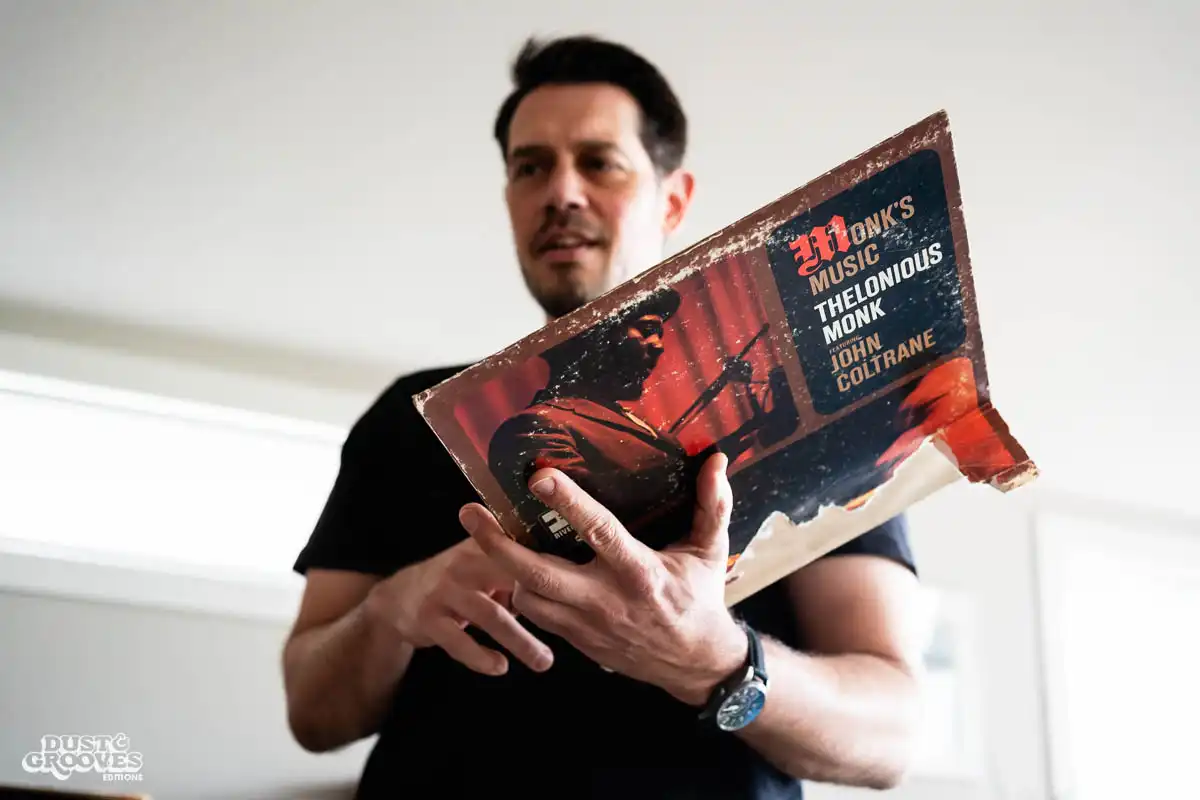
Many of the records you’ve talked about could be called “jazz fusion” in some way or another. What do you like about jazz fusion and do you remember how you got into it?
I can’t really remember a specific album, but it has to be funky and rhythmic, like Wilbur & Niles, which we already talked about—the fusion of jazz and funk, and it could maybe have like half a percent of cheese, something that kind of reminds me of the 80s, you know? Maybe it’s the nostalgia, I don’t know, or the fact that it’s a little lesser known and not listened to very much.
Obviously, Miles Davis is a household name and Kind of Blue is his best known album, so you clearly have no problem listening to popular records. How much of it is the fun of listening to things that aren’t as well known?
I think maybe it just suits my personality, that I seek out things that are less popular, less well known. It’s probably the discovery and the hunt, like I found something really cool that I didn’t know about before and no one told me about it.
What’s your collection size today and are they all cataloged on Discogs?
I estimate my collection is about 3,000, but it’s not all logged in my collection on Discogs. I mean, that’s like a rainy-day project that I’ve been putting off. I think my Discogs collection is like 900 or 1,000 items. It’ll happen.
Kevin Lewandowski is a record collector, founder and and CEO of Discogs.com and a pocket calculator collector. He lives in Portland, Oregon.

Dust & Grooves: Further Adventures in Record Collecting – Deluxe Slipcase First Limited Edition
Further Adventures in Record Collecting
Dust & Grooves Vol. 2
Kevin and 150 other collectors are featured in the book Dust & Grooves Vol 2: Further Adventures in Record Collecting.
Become a member or make a donation
Support Dust & Grooves
Dear Dust & Groovers,
For over a decade, we’ve been dedicated to bringing you the stories, collections, and passion of vinyl record collectors from around the world. We’ve built a community that celebrates the art of record collecting and the love of music. We rely on the support of our readers and fellow music lovers like YOU!
If you enjoy our content and believe in our mission, please consider becoming a paid member or make a one time donation. Your support helps us continue to share these stories and preserve the culture we all cherish.
Thank you for being part of this incredible journey.
Groove on,
Eilon Paz and the Dust & Grooves team


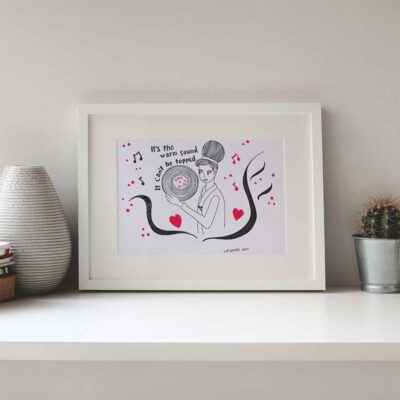


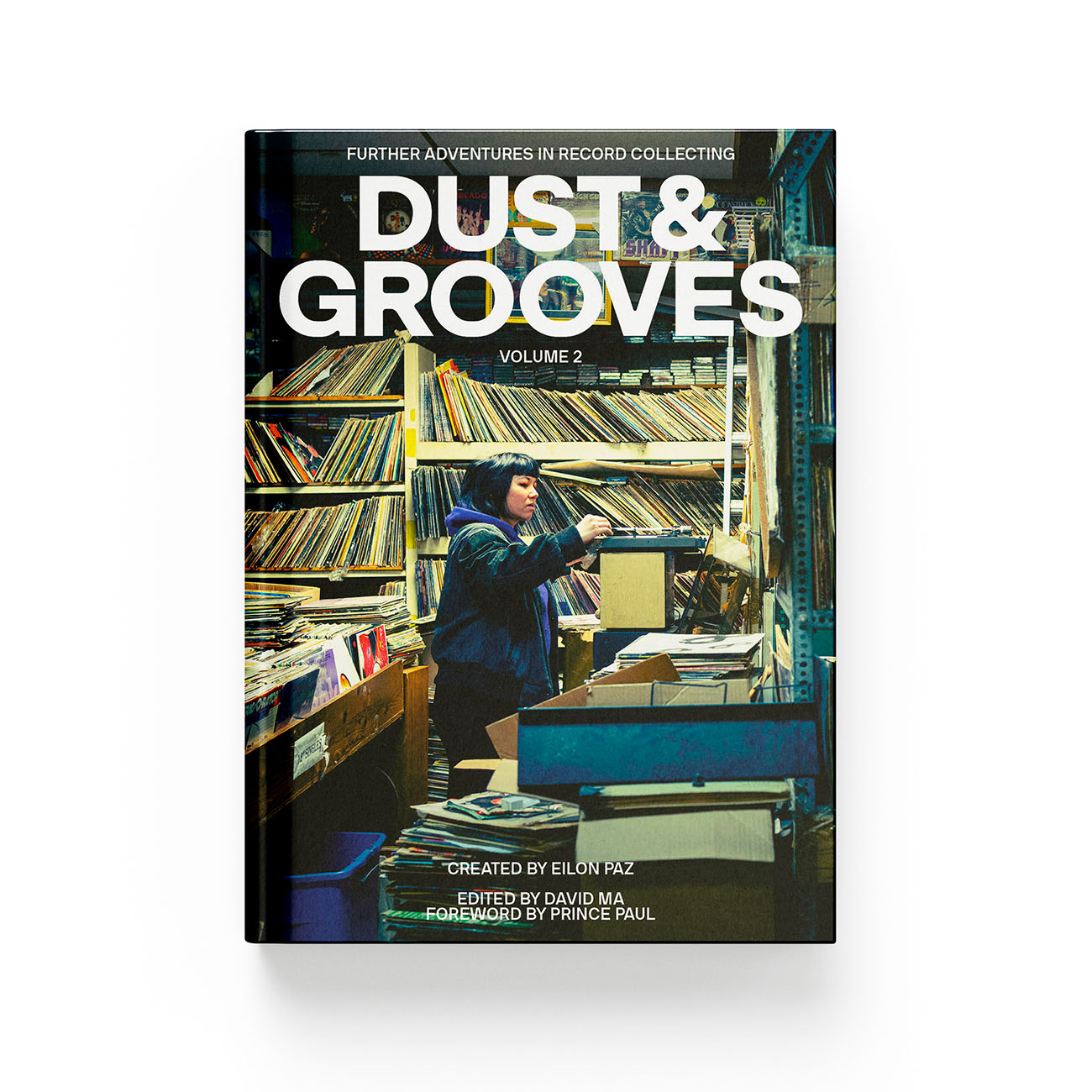
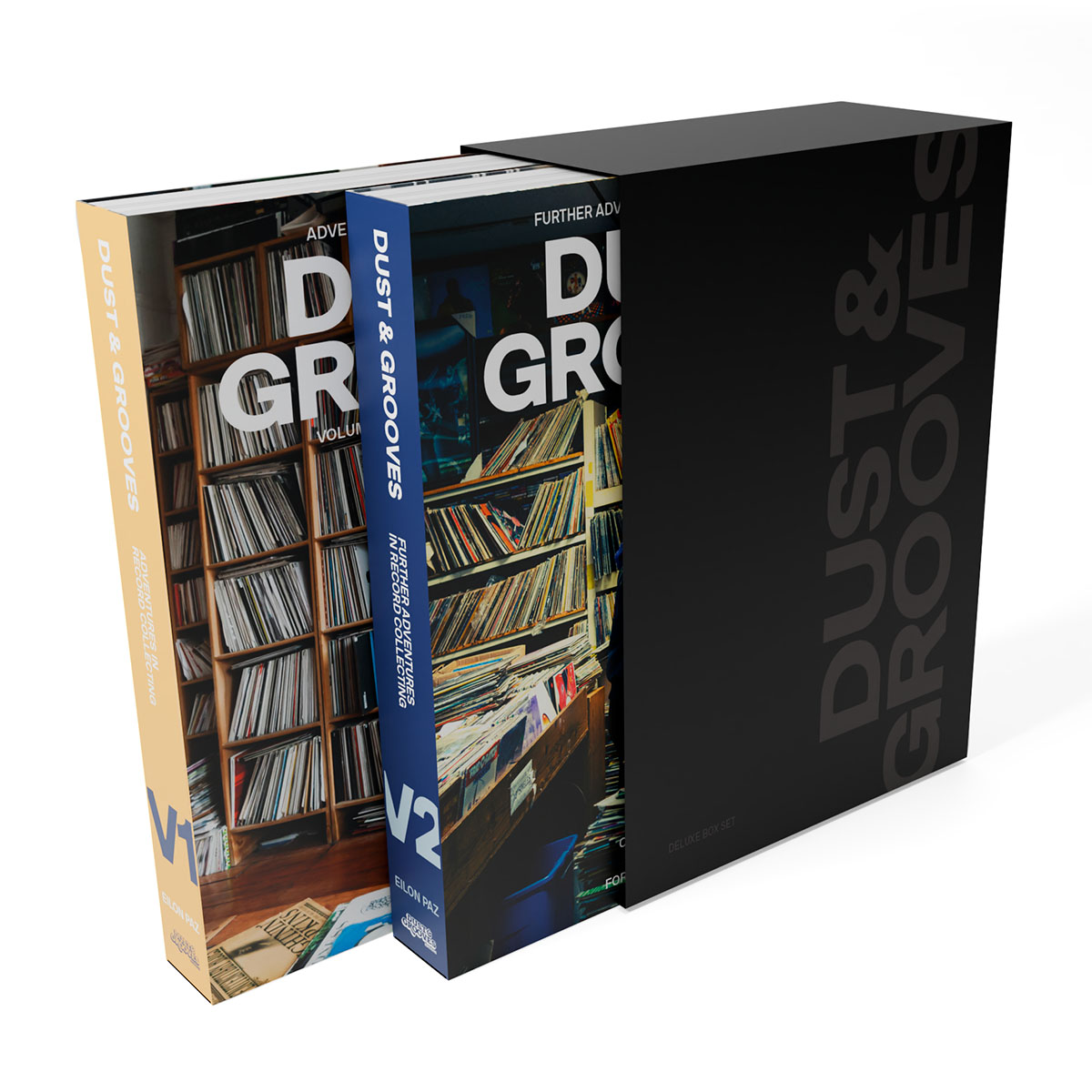
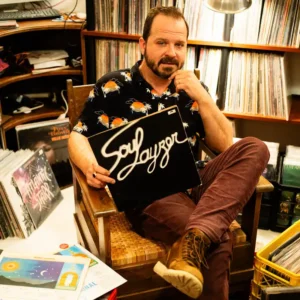
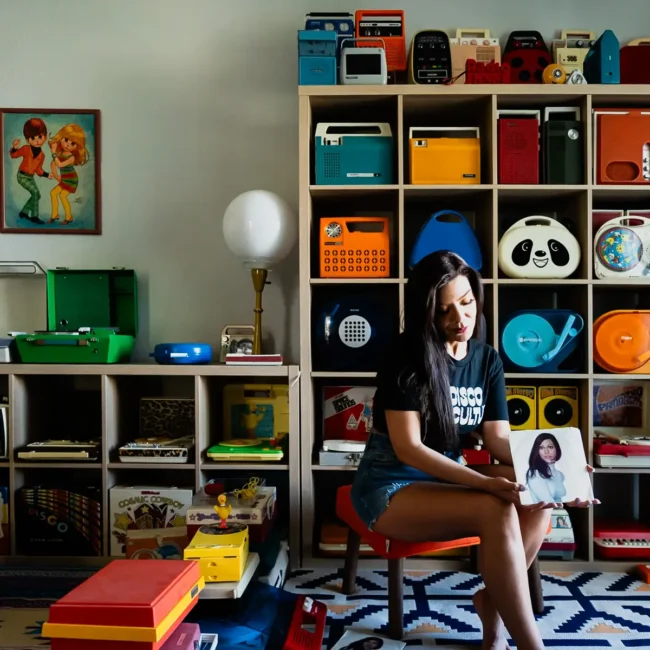
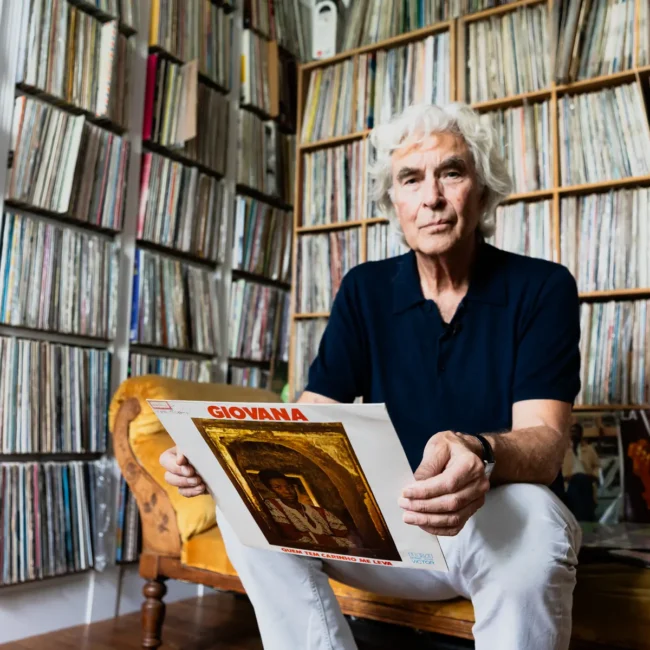
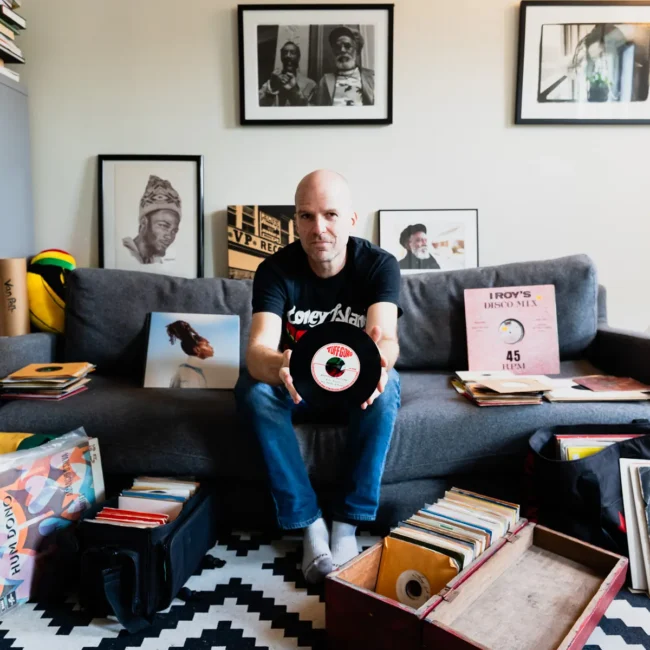
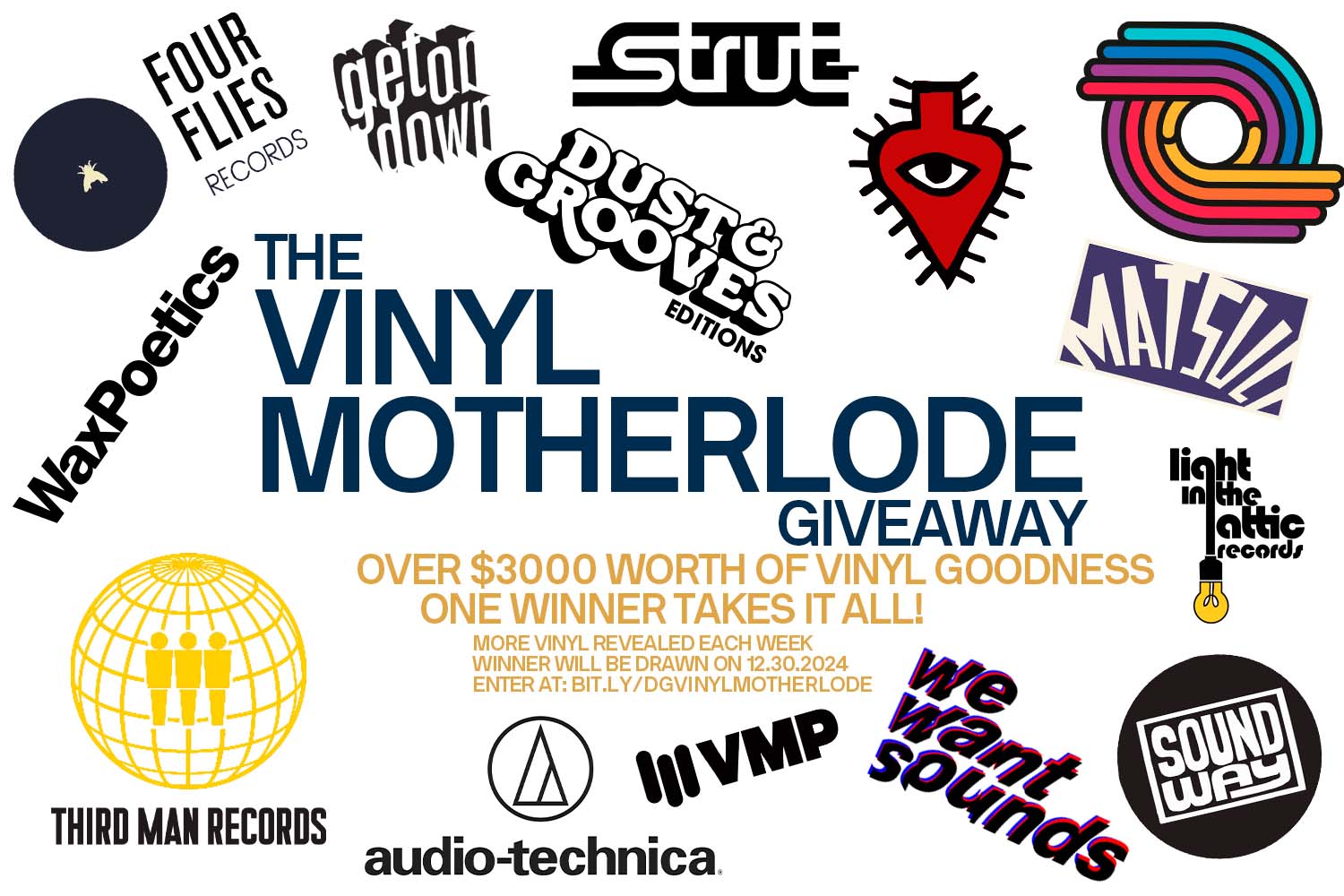
1 Comment
Eran
Great read. Discogs is an amazing site. I often go there to check the value of my LPs, mostly the ones I gave away haha